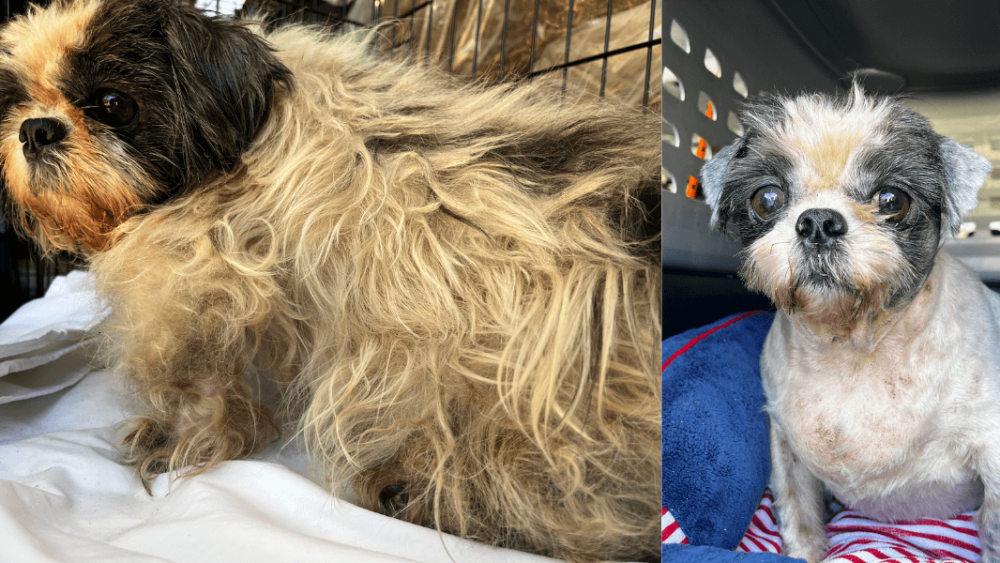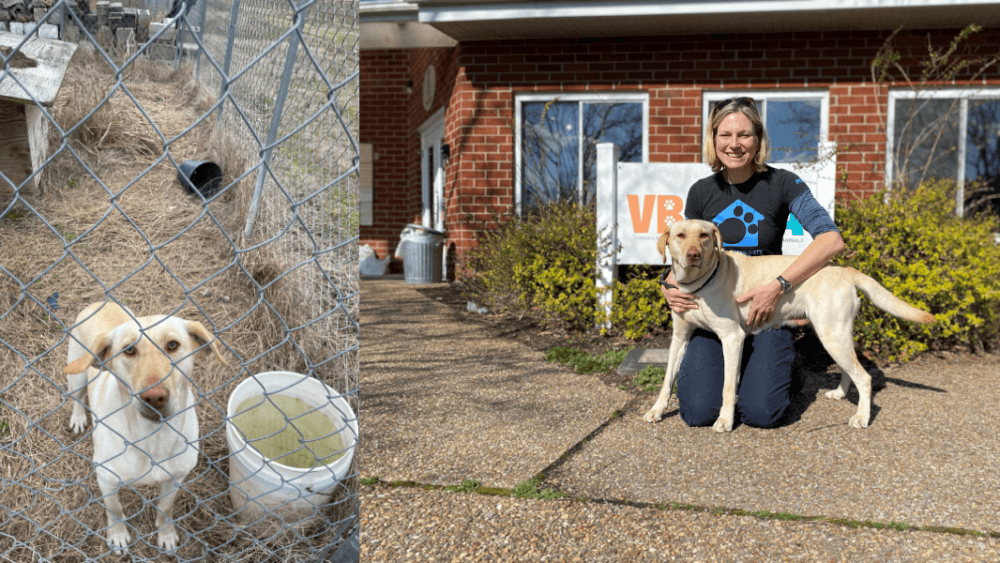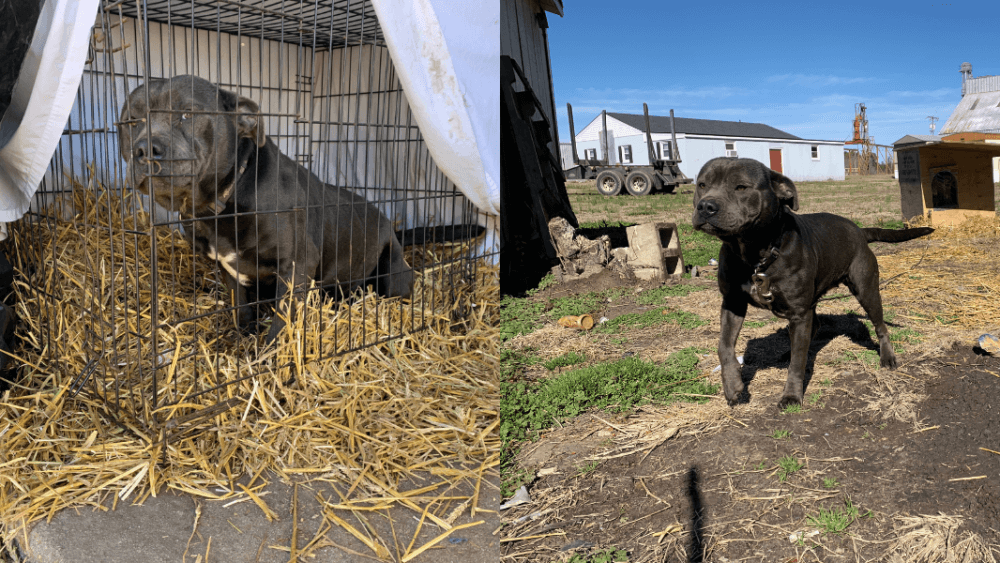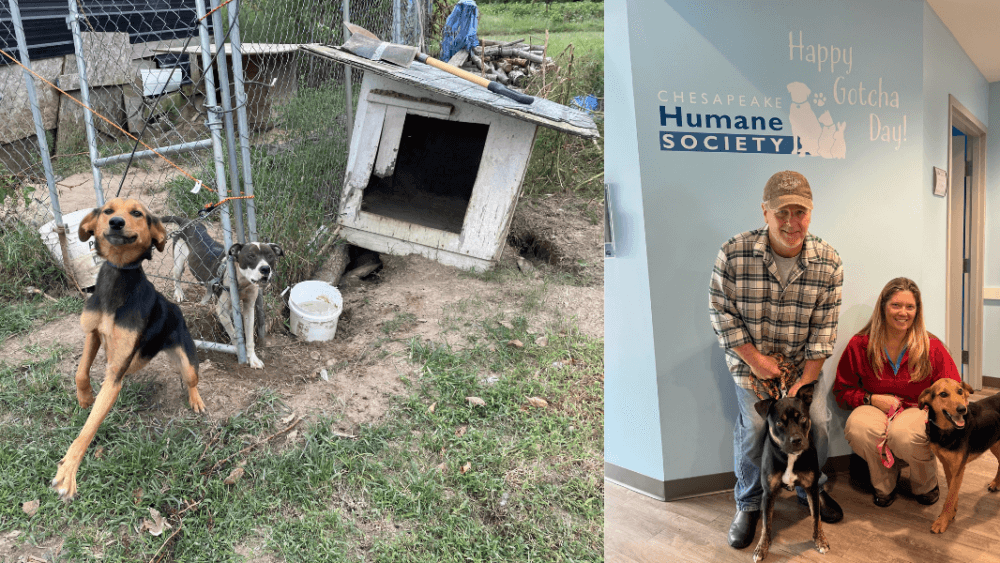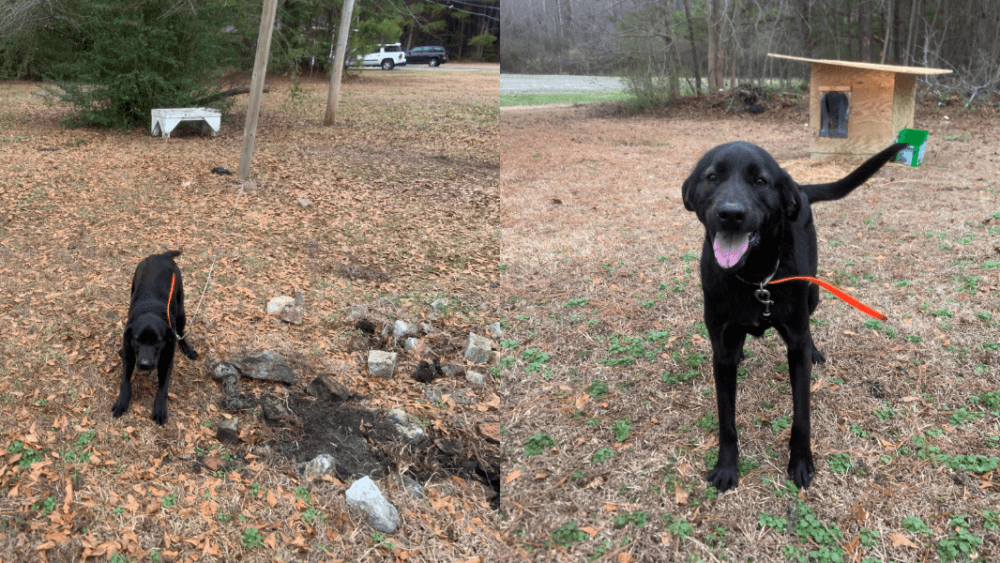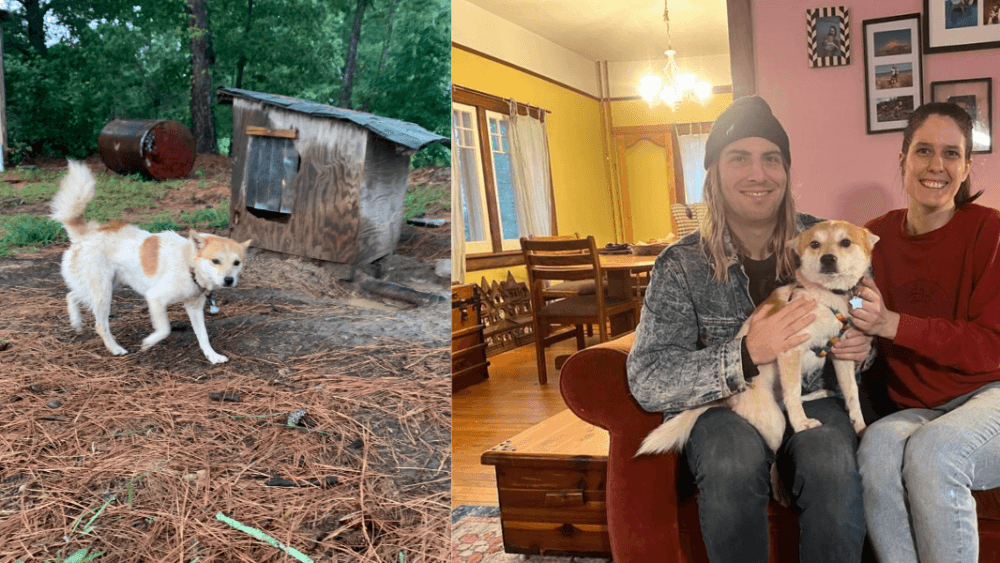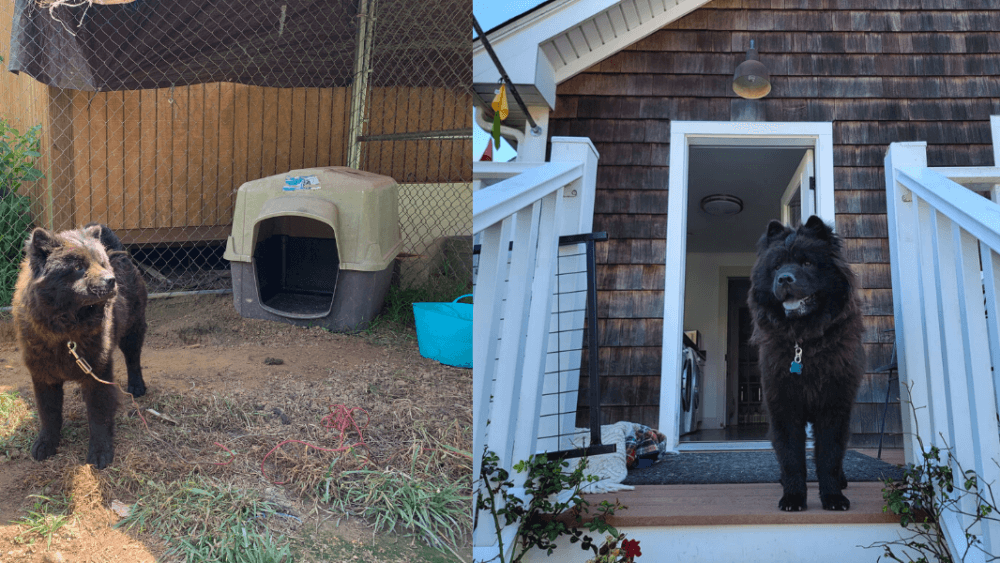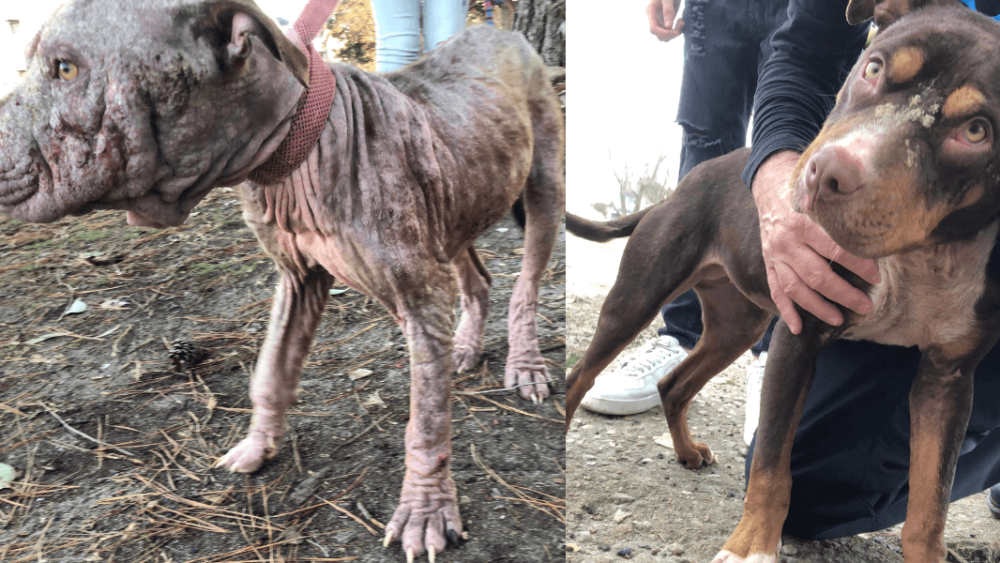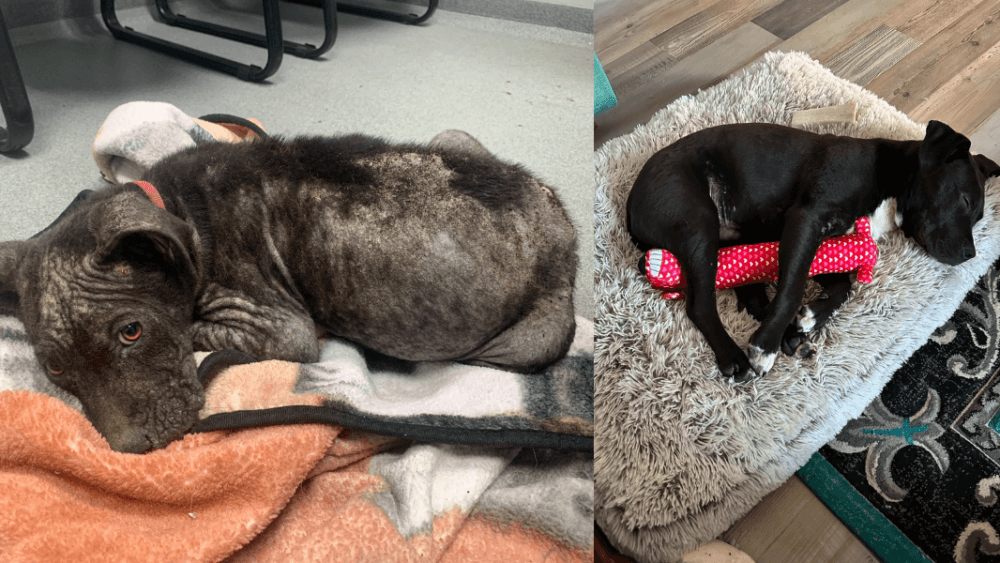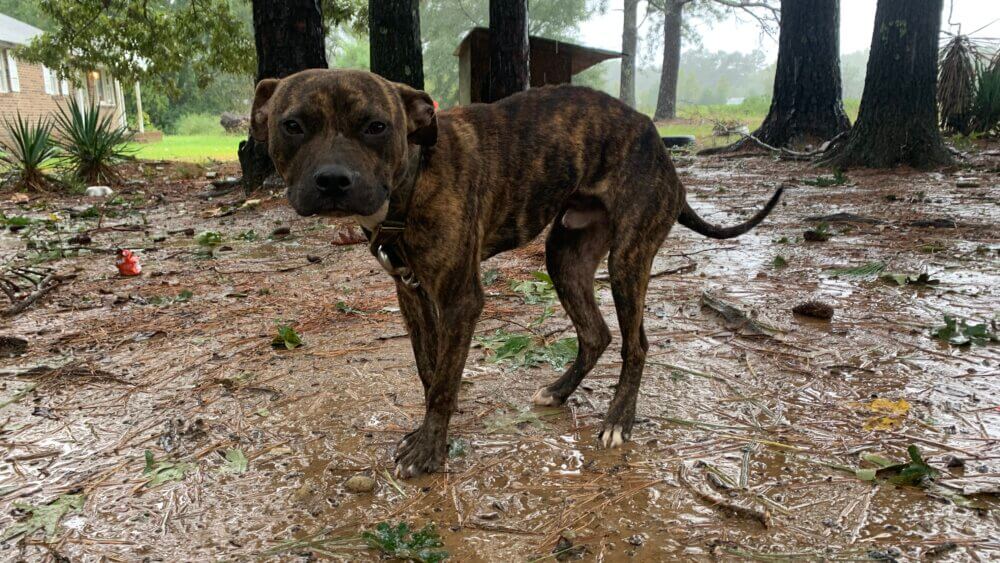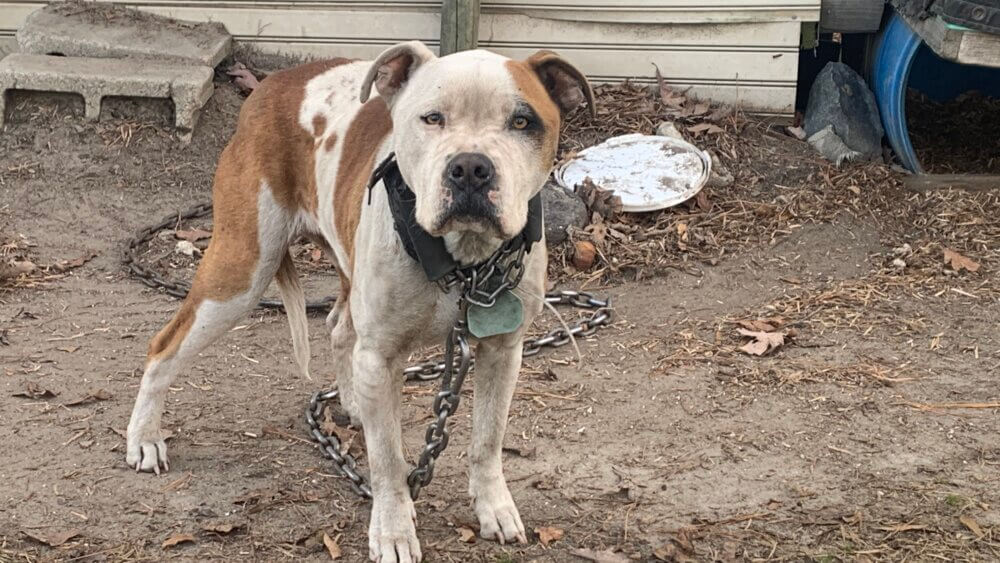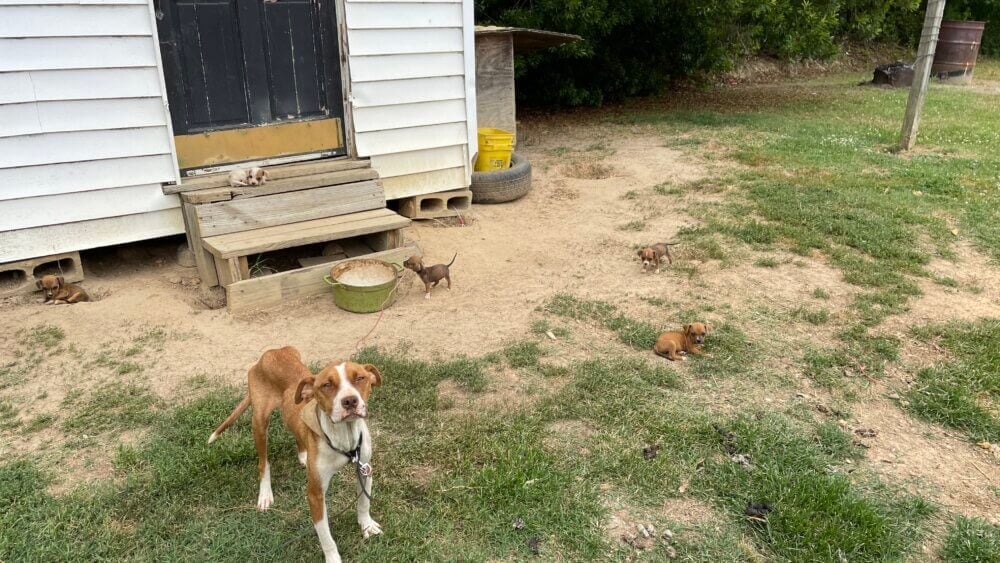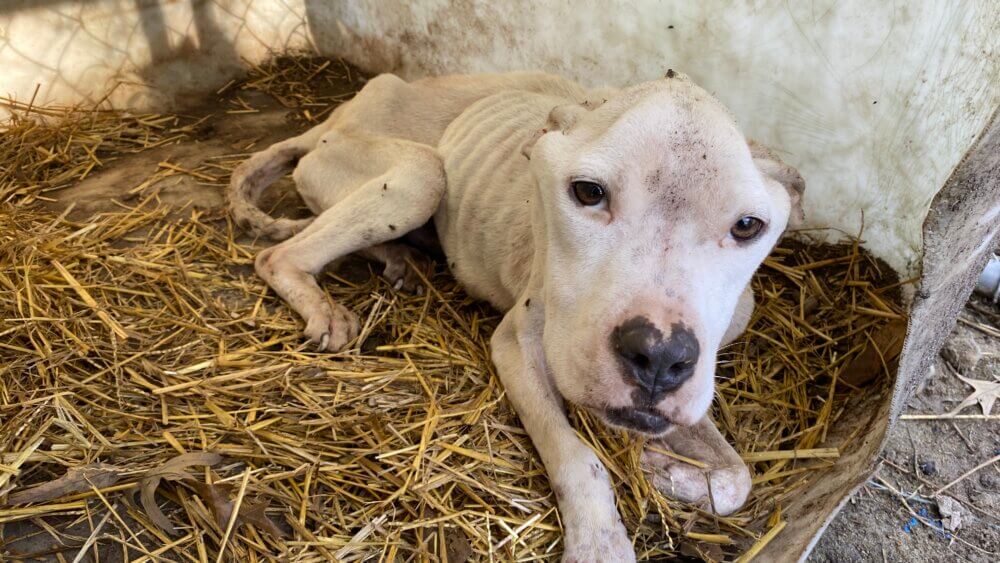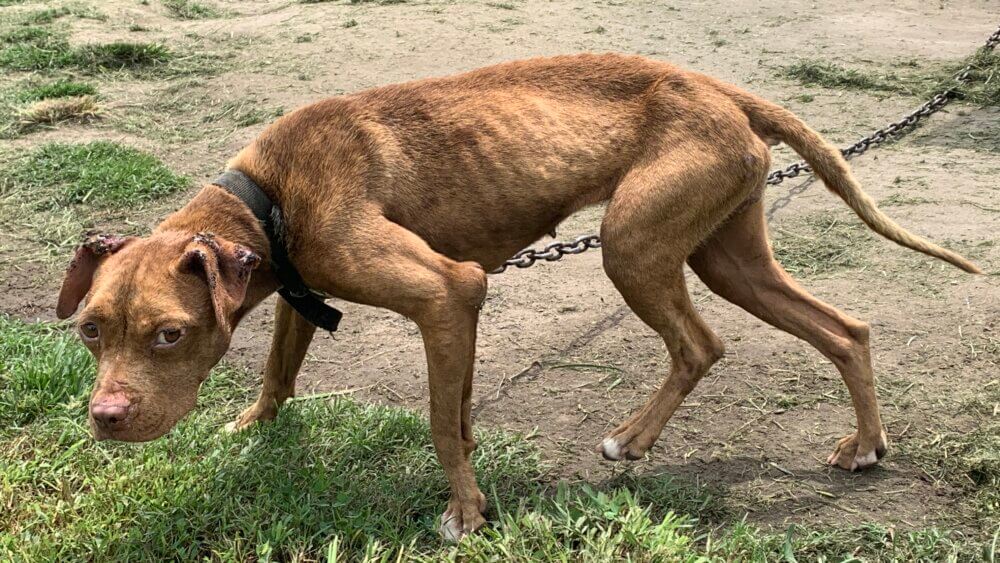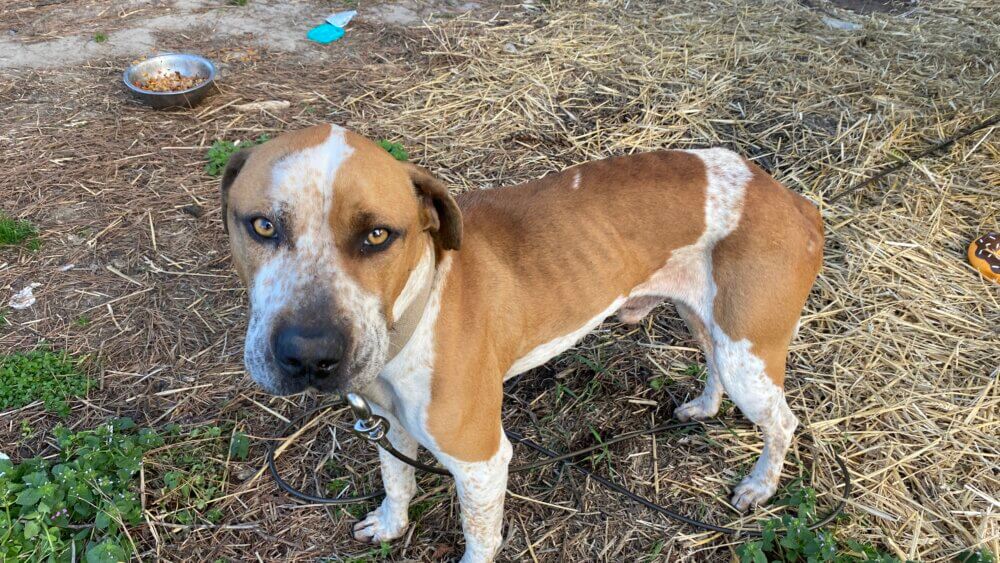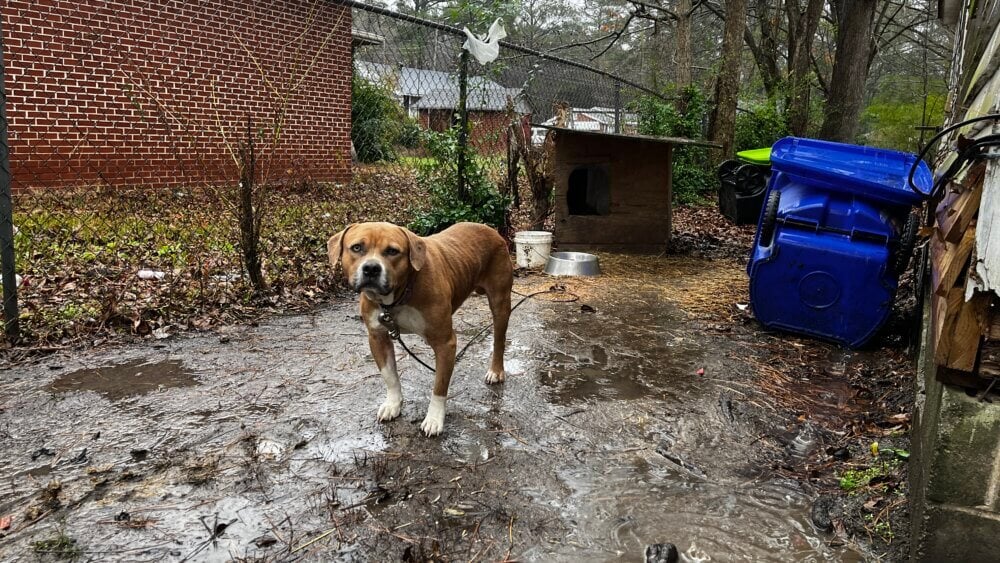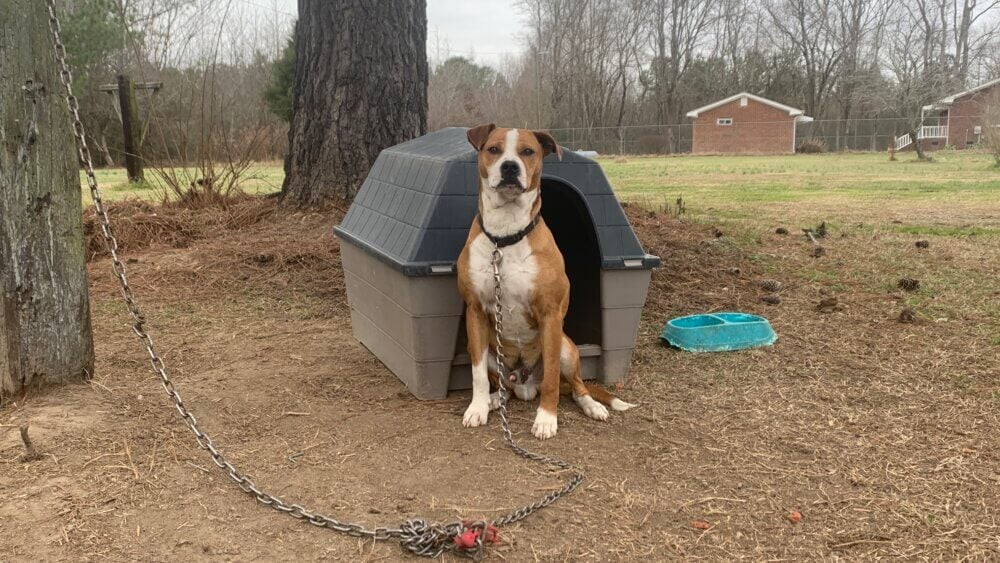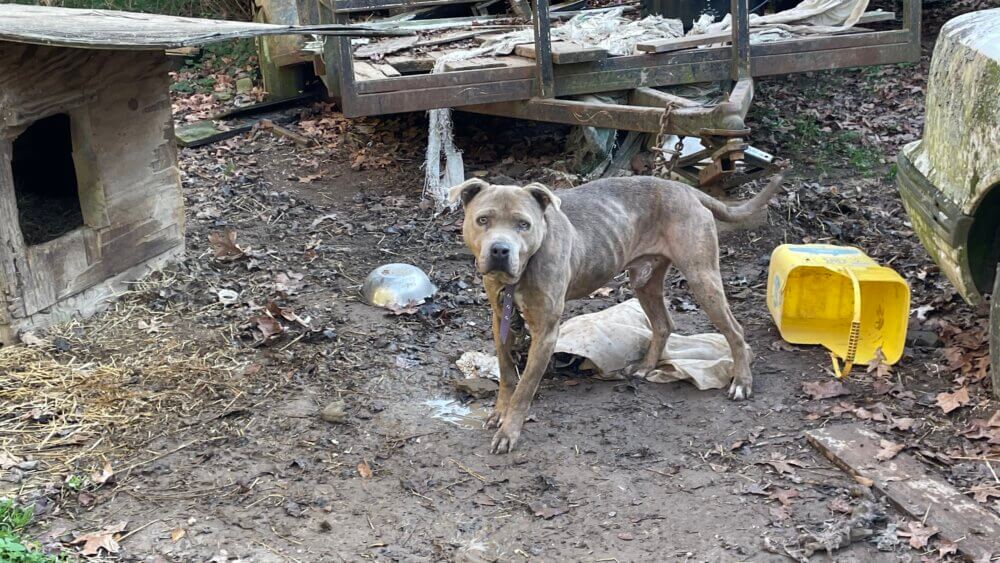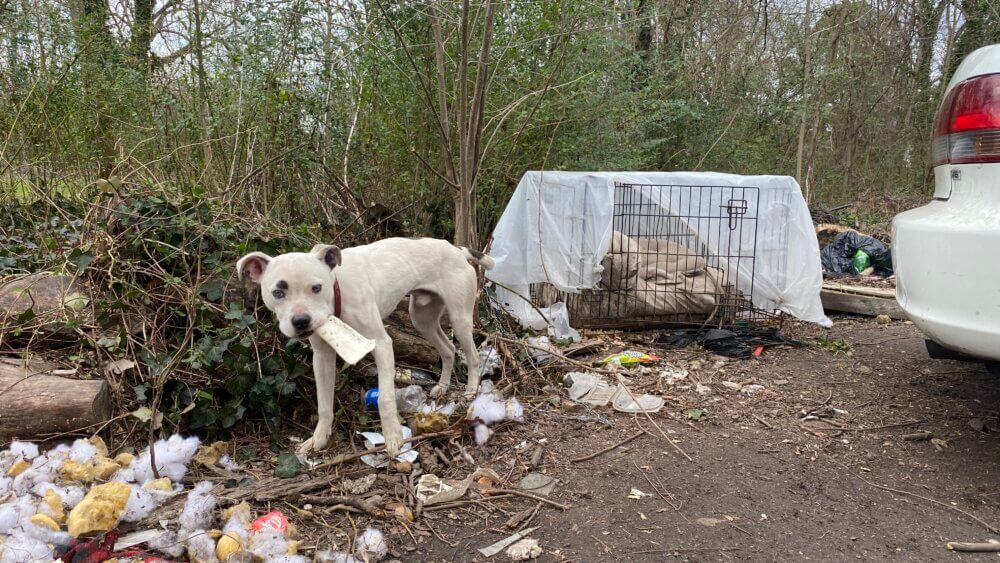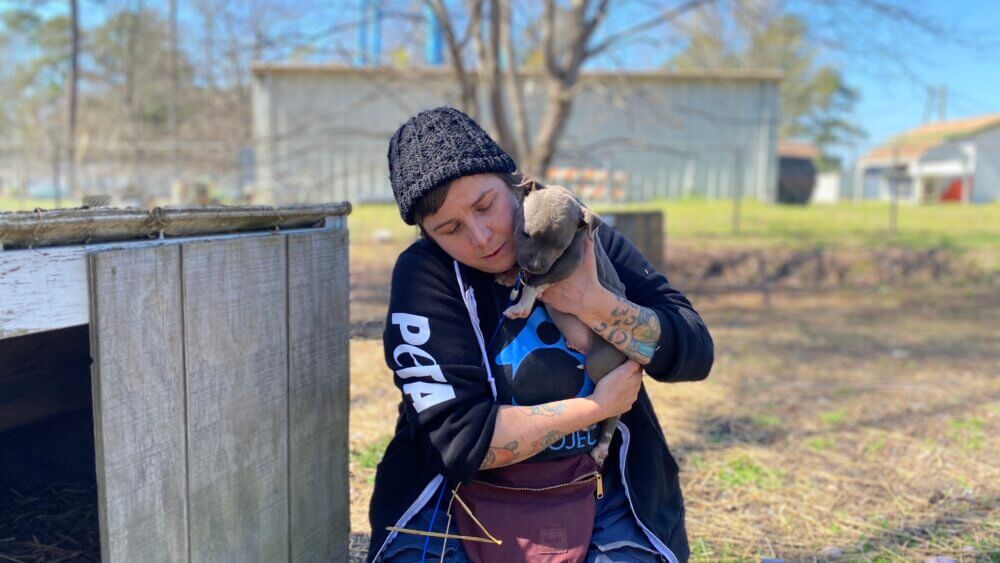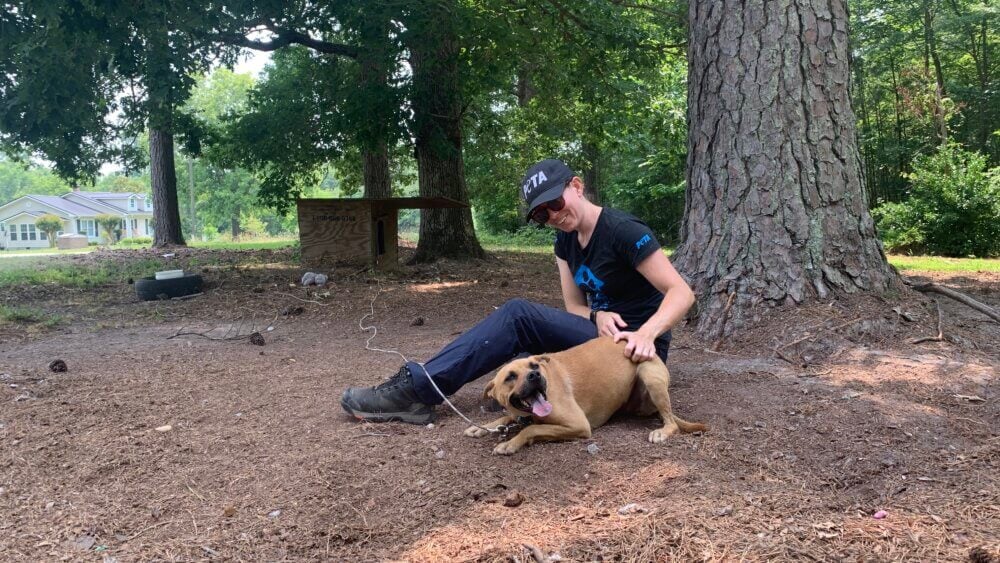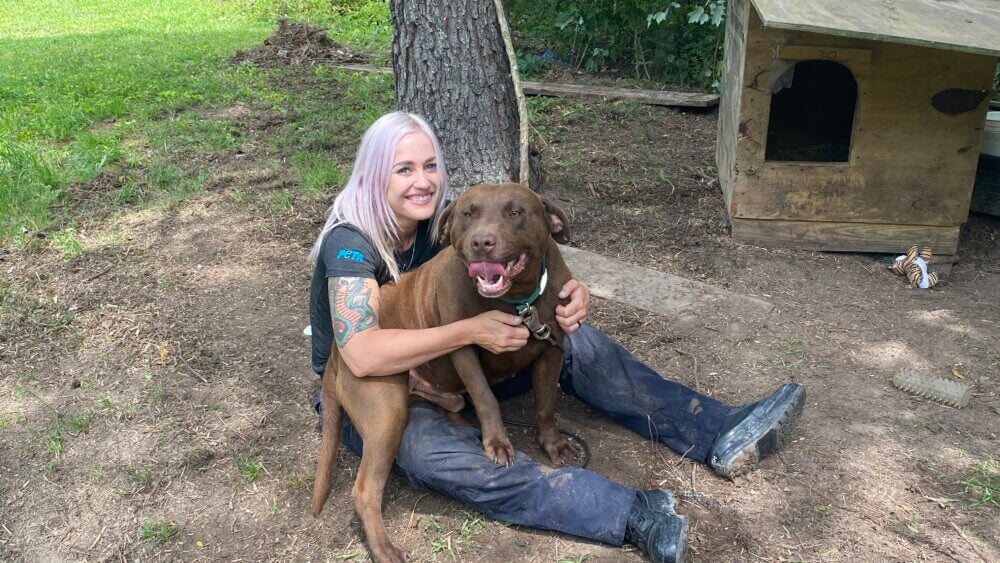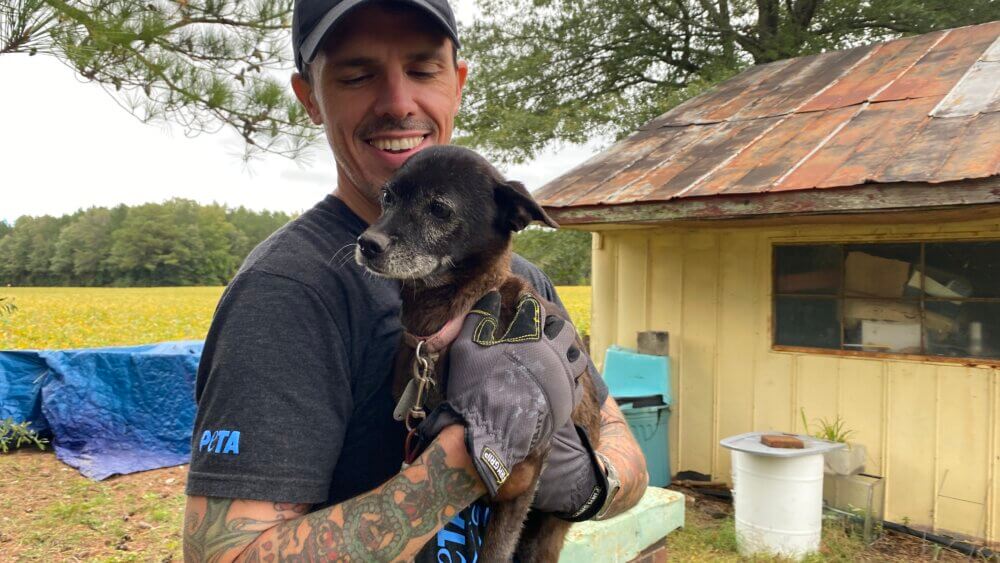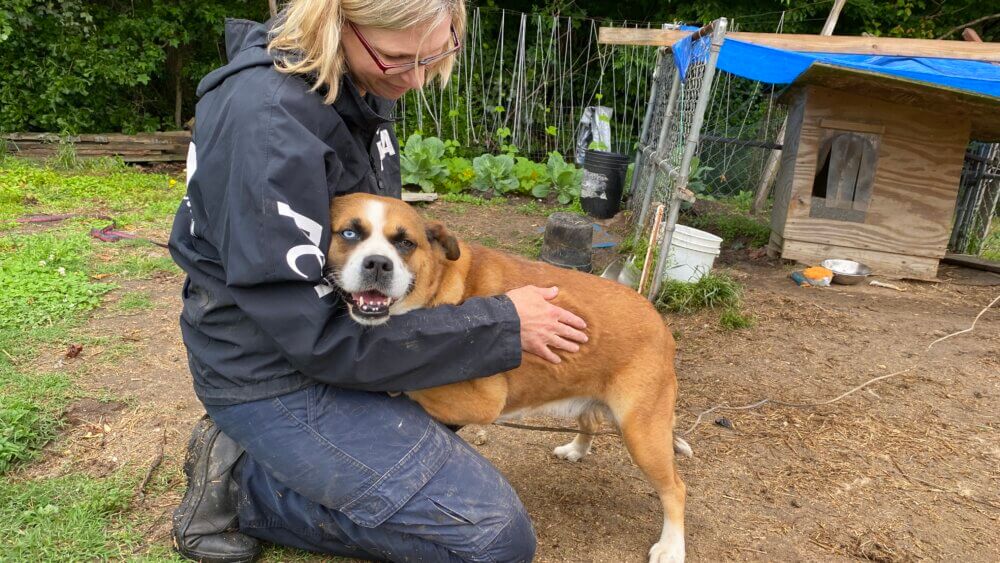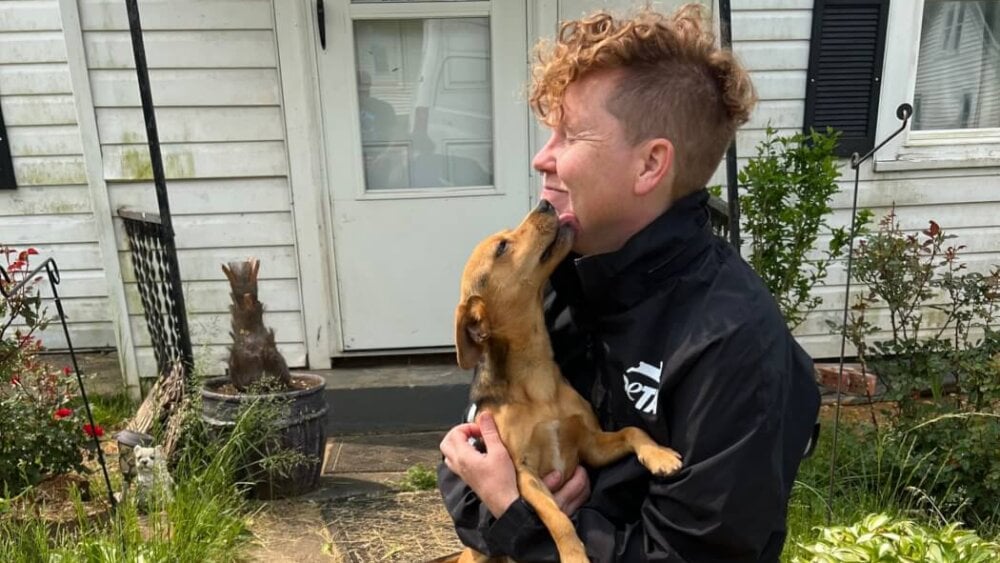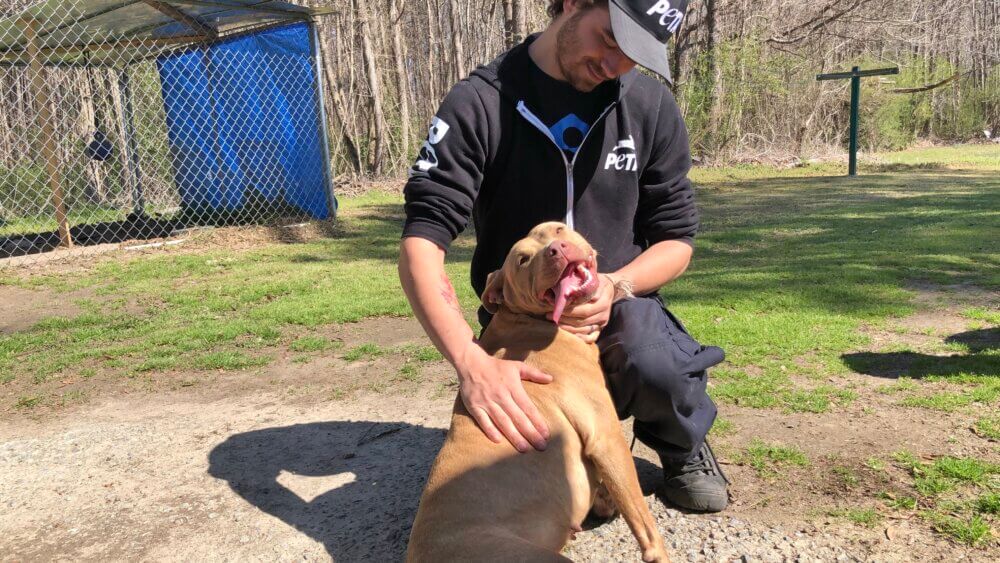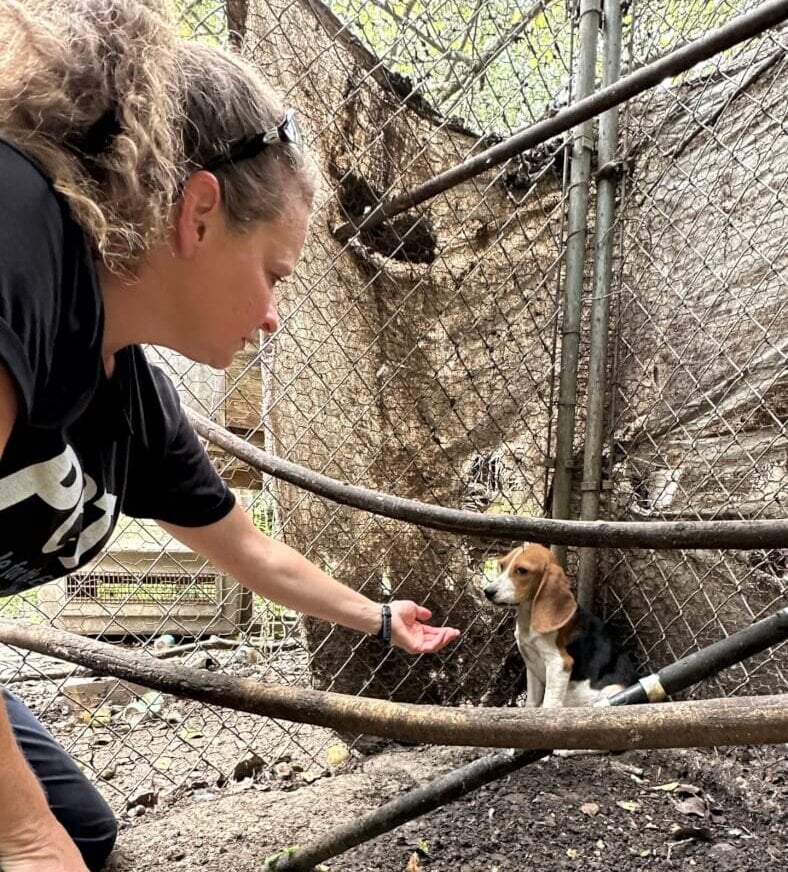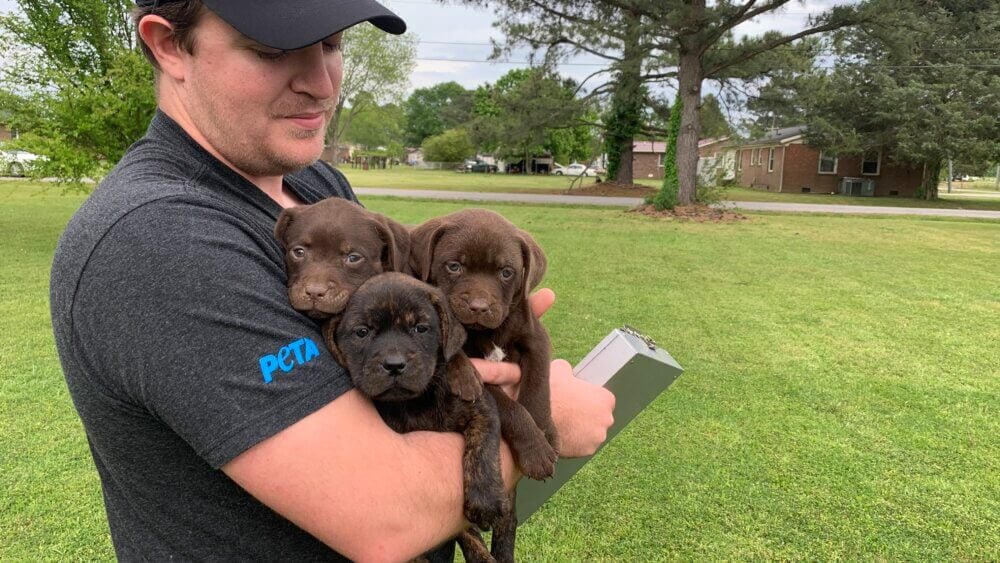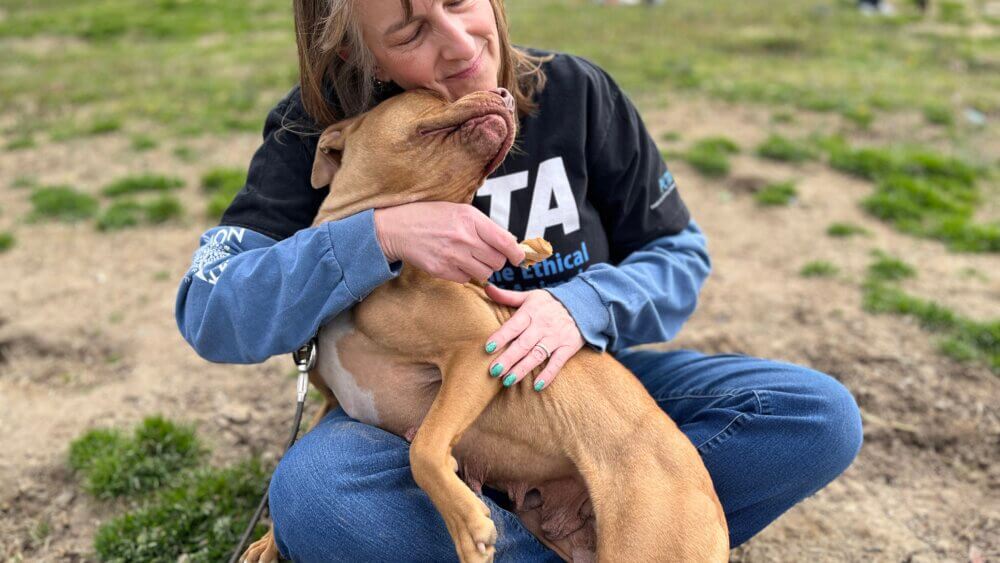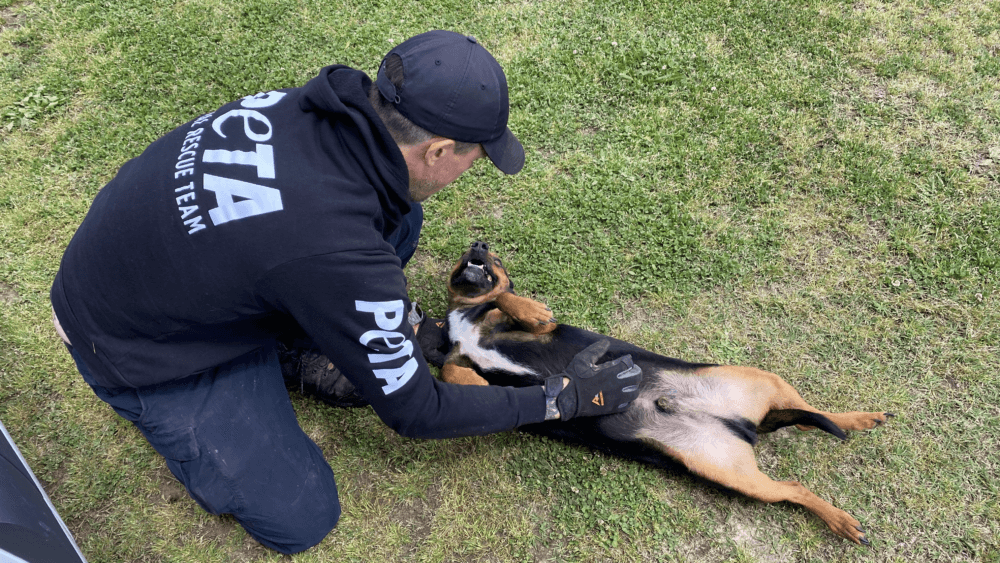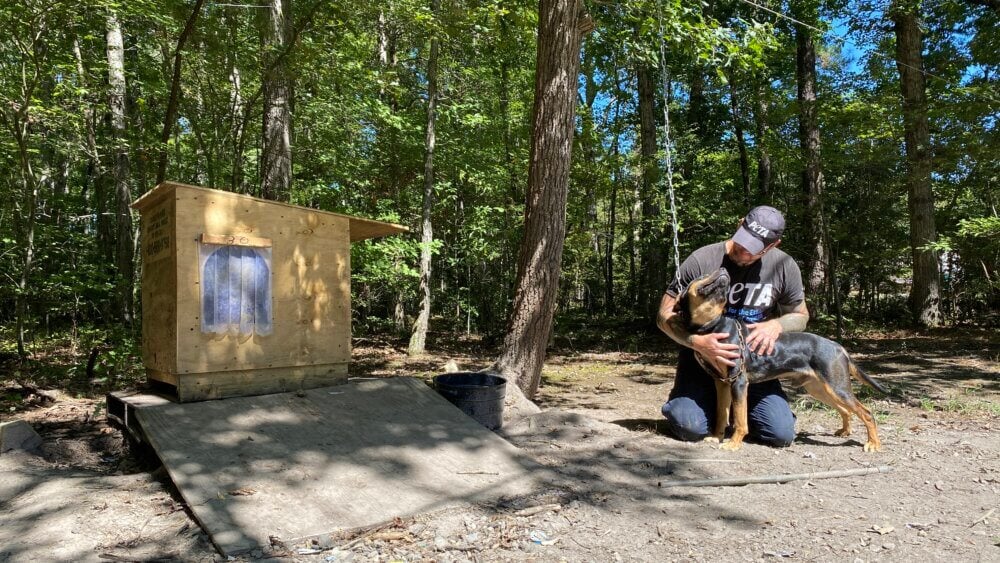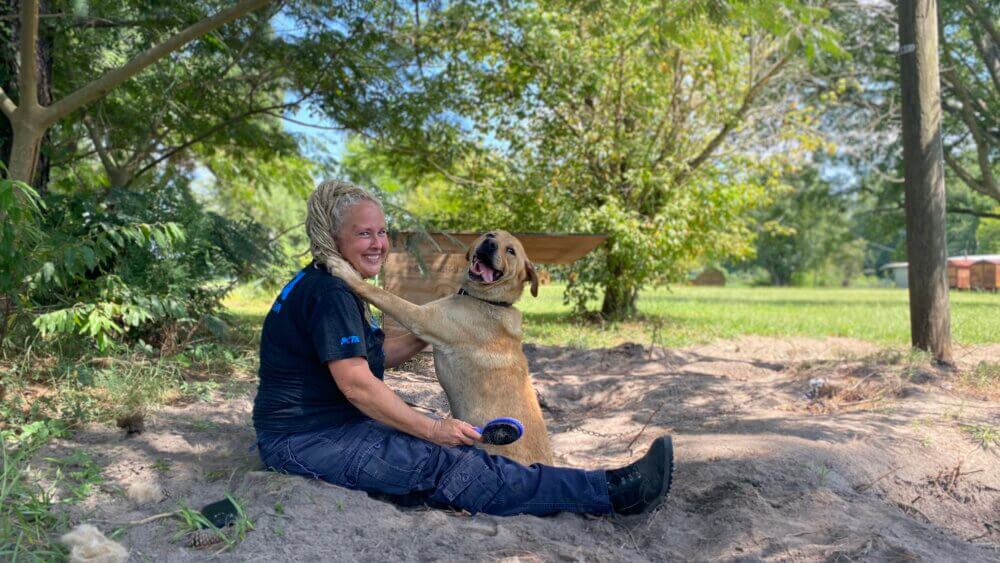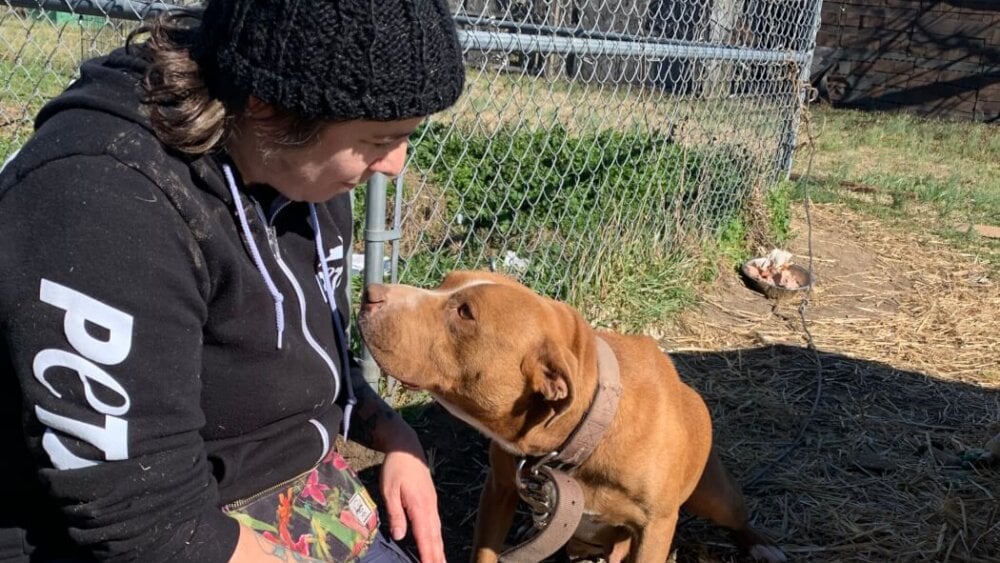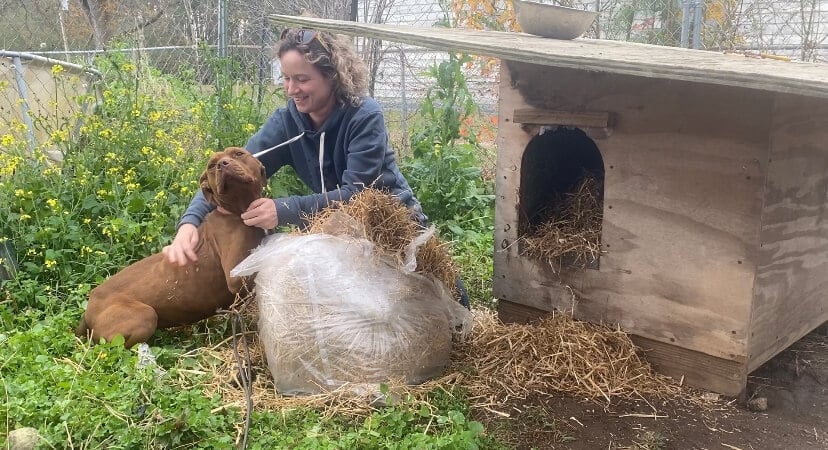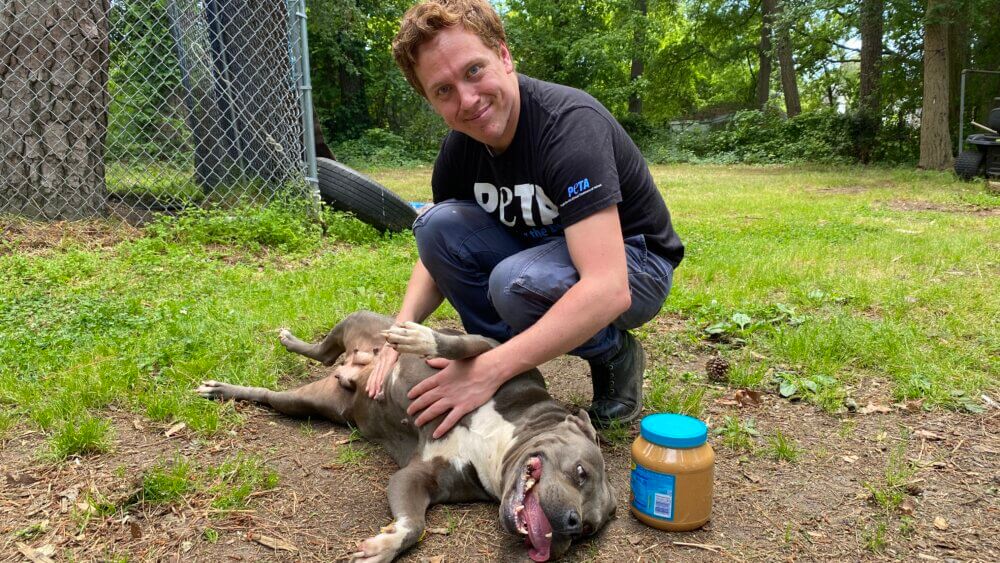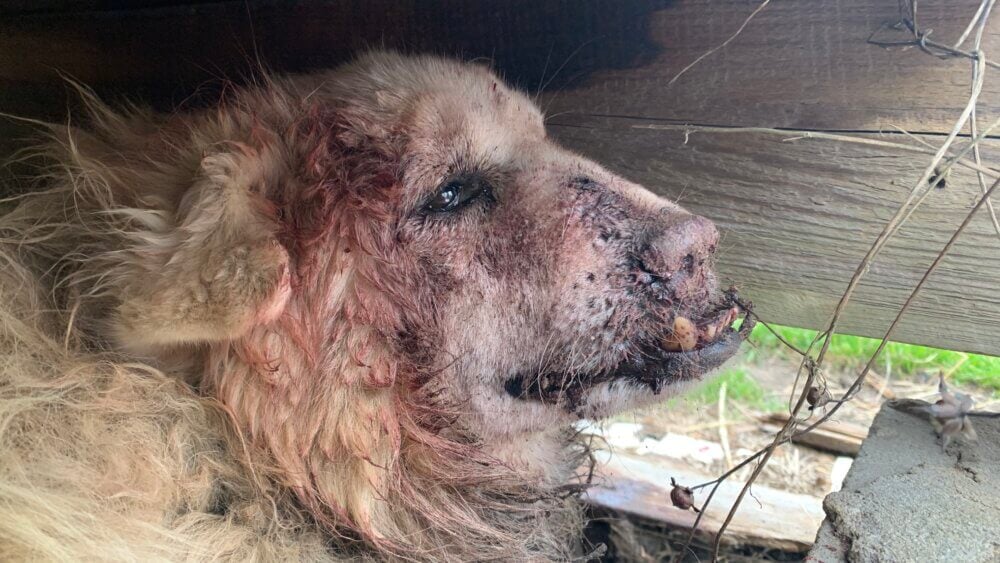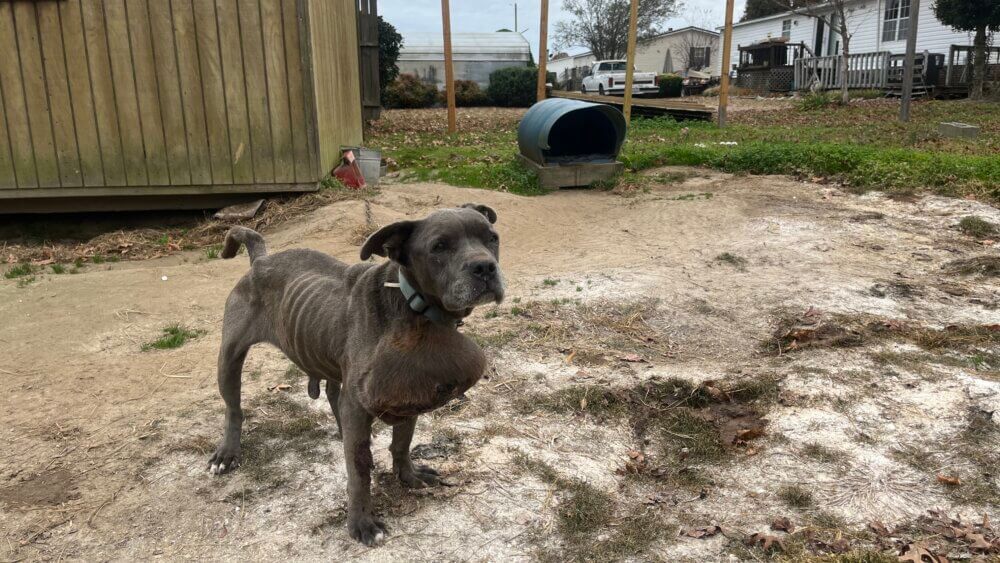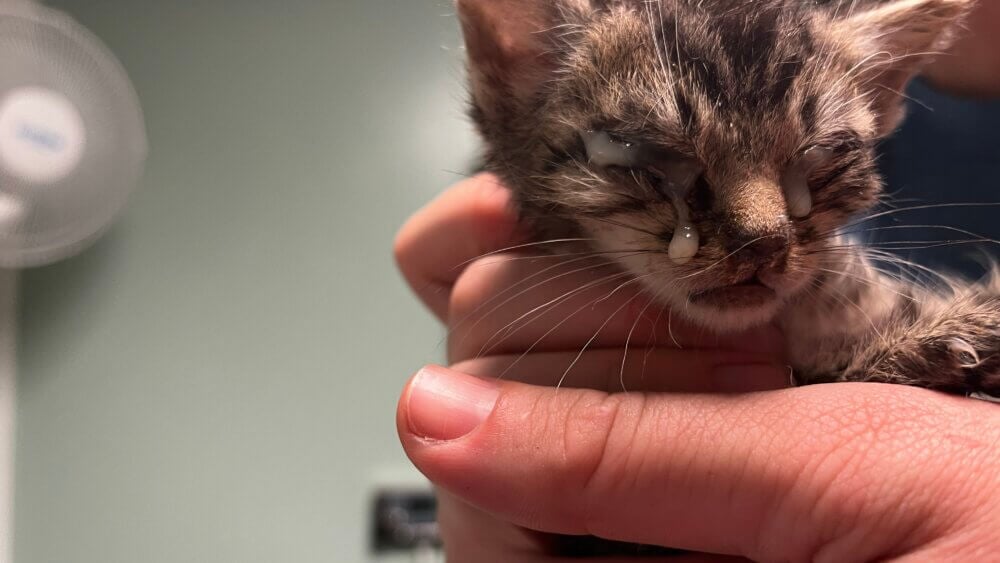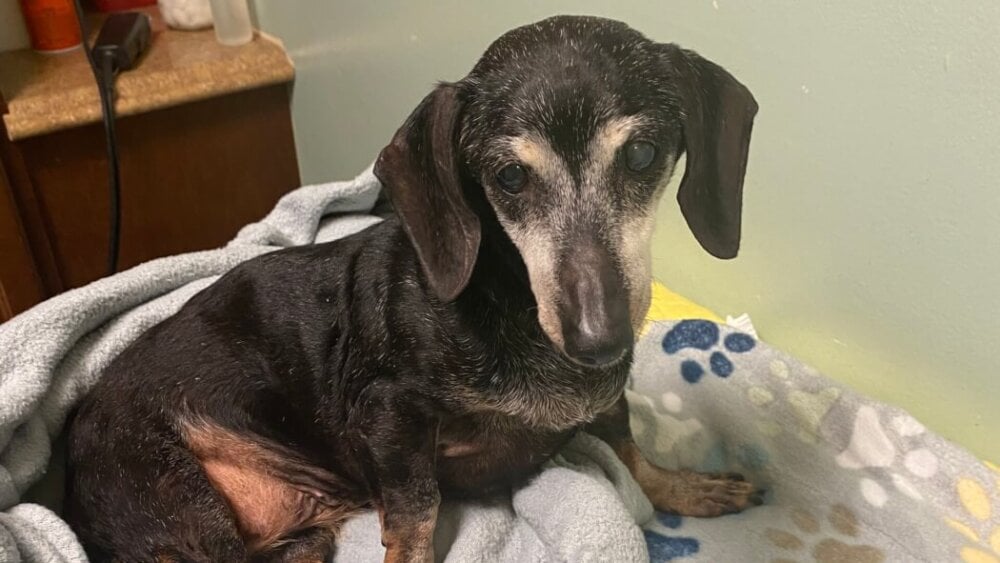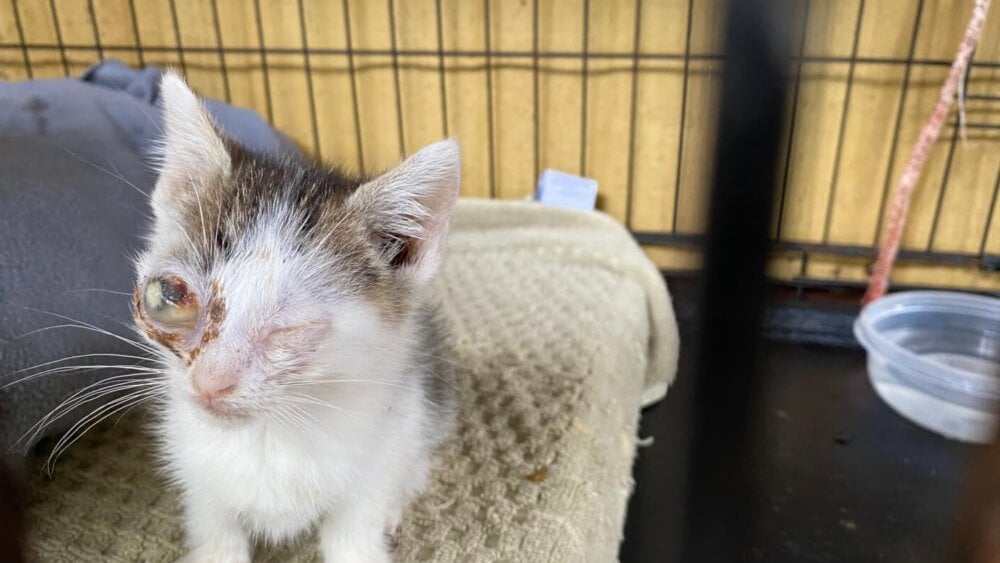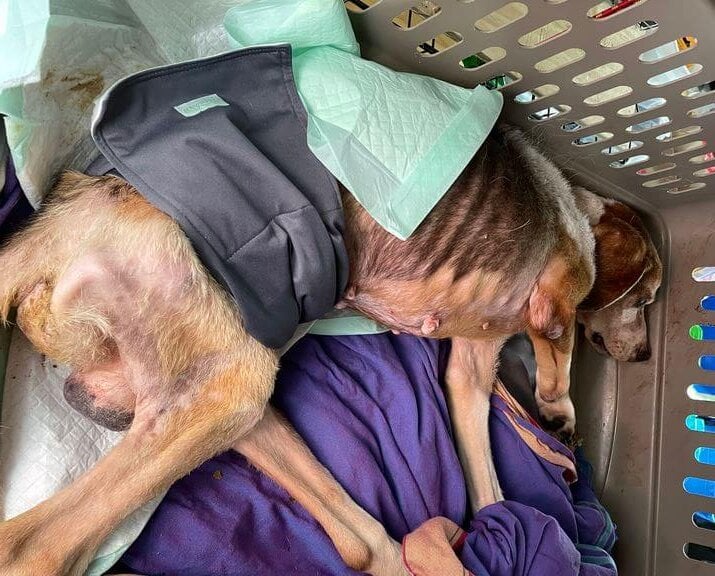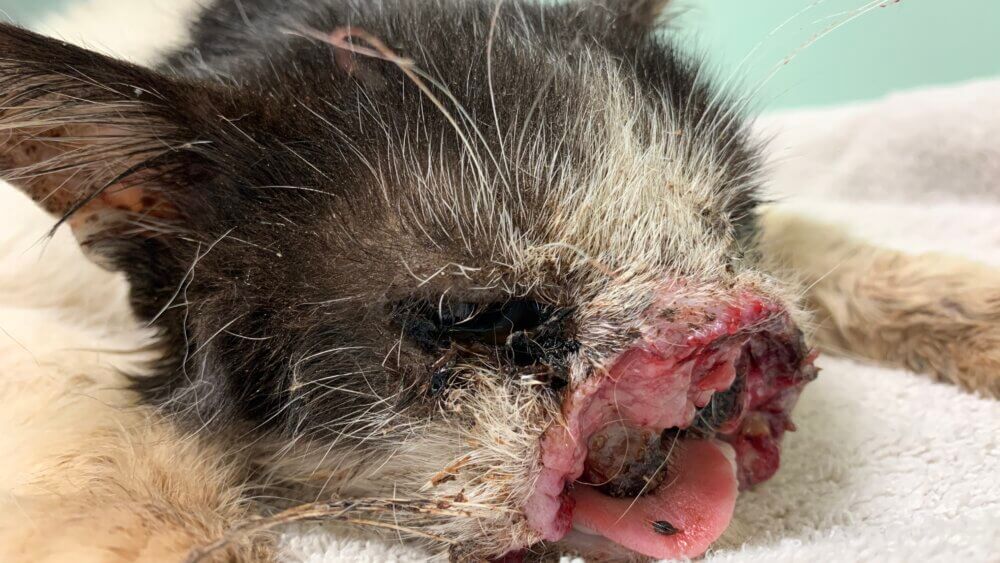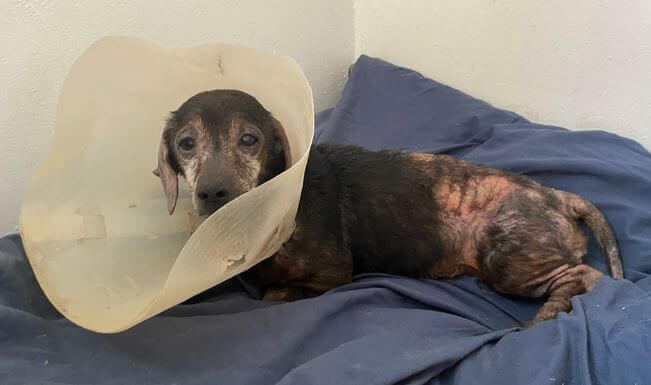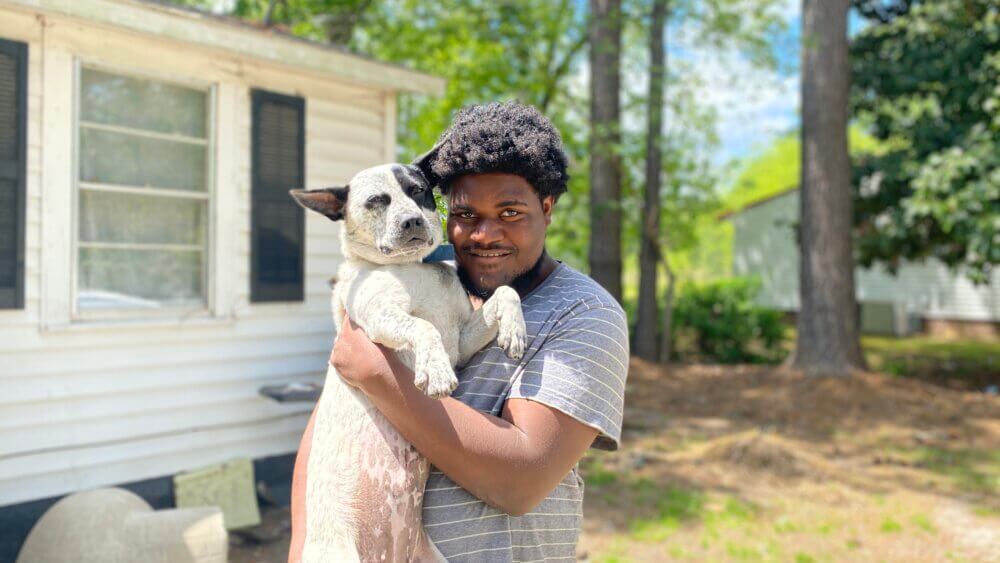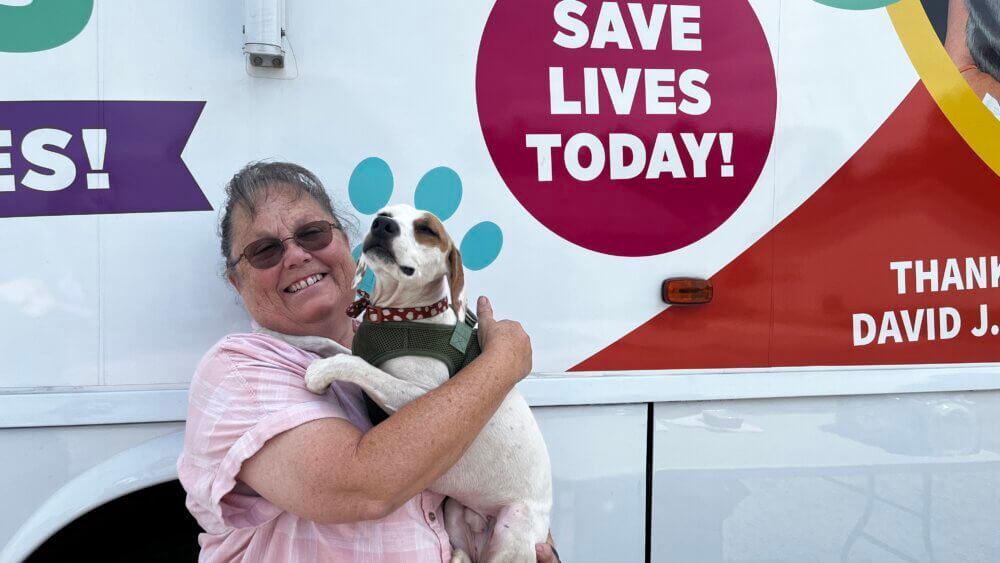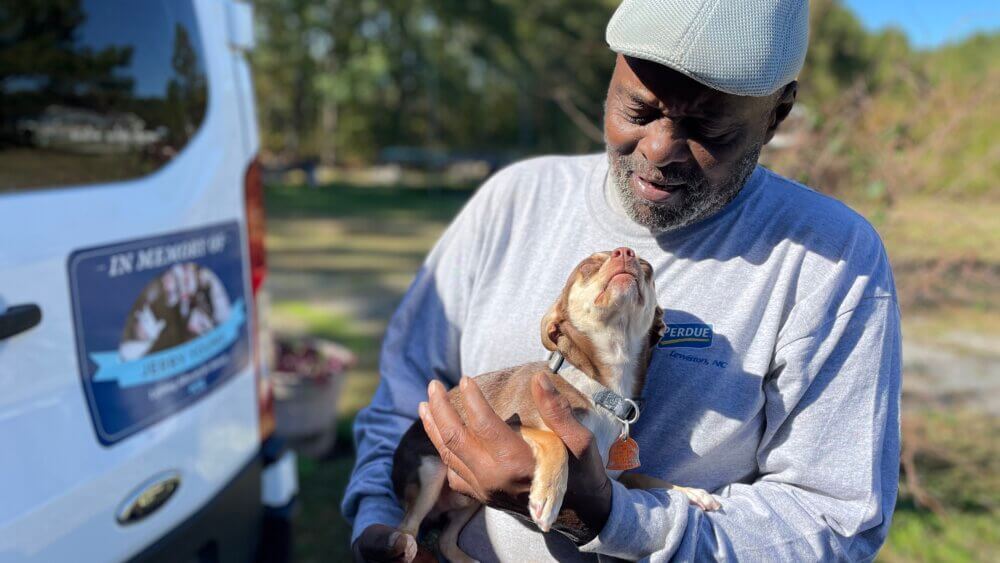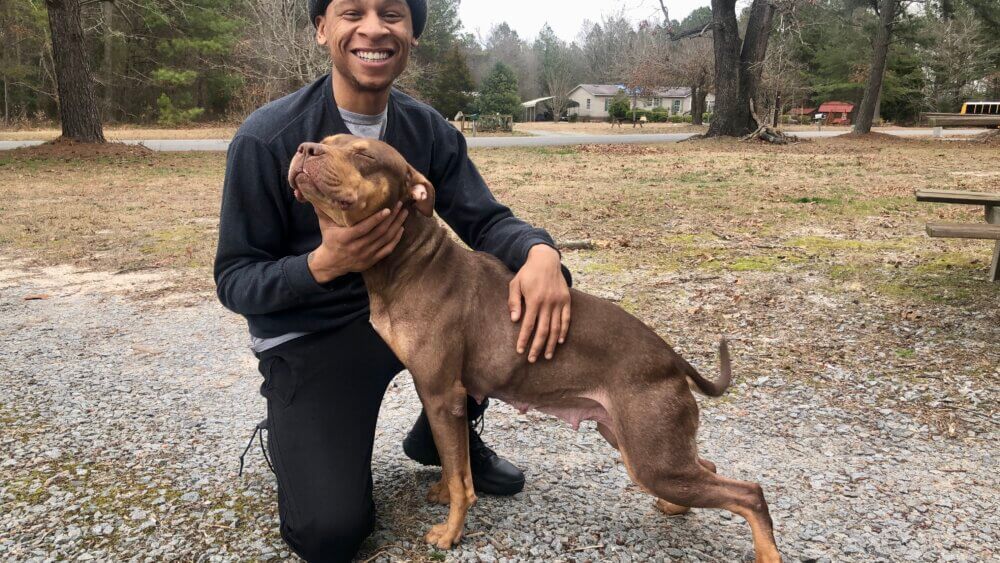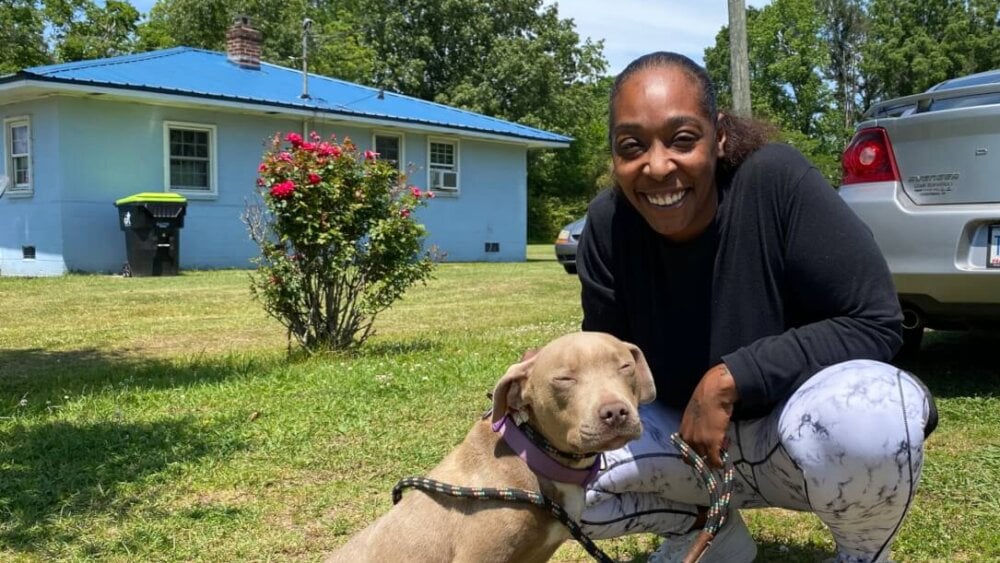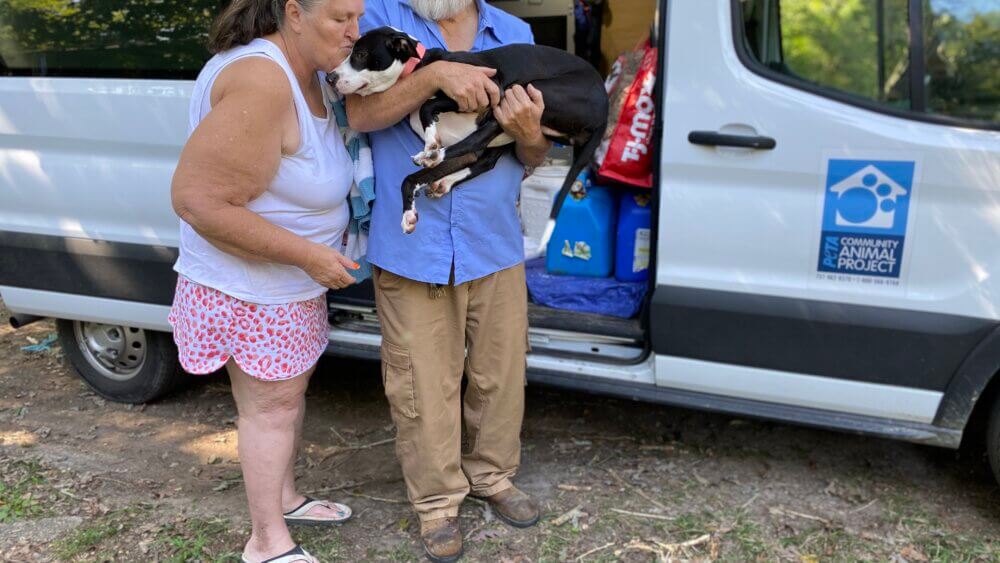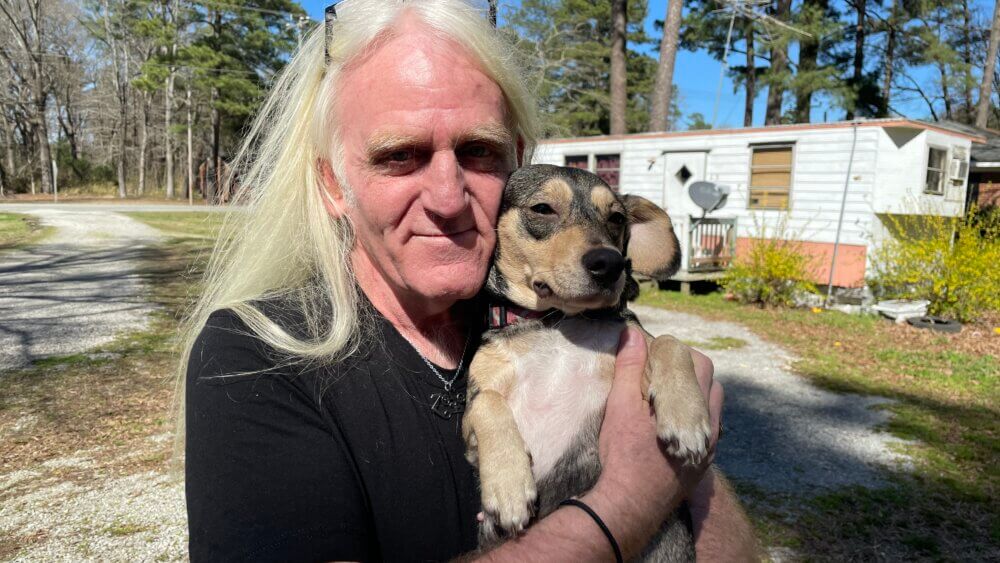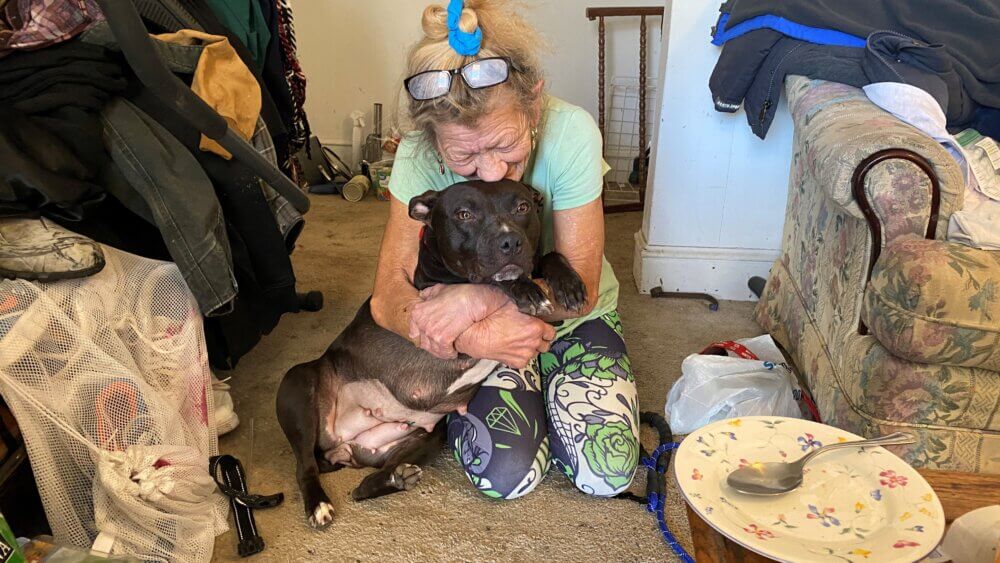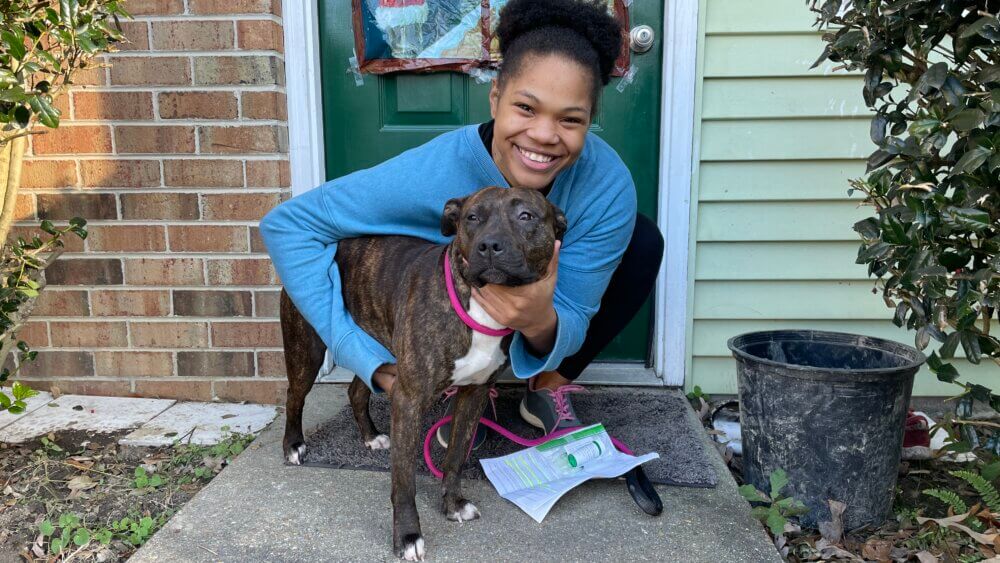Every day and night, in all weather extremes, including hurricane conditions and nor’easters, PETA’s fieldworkers answer calls for help from people living in some of the poorest communities in southeastern Virginia and northeastern North Carolina, where animals have no one else to help them. Meet our staff and some of the animals they help.
Every year, PETA releases a report showing how many animals were taken into our shelter and what became of them. Many were given to PETA because they were elderly, feral, sick, suffering, dying, aggressive, or otherwise unadoptable, but that is only a small part of our fieldwork for needy animals in the impoverished communities surrounding our Norfolk, Virginia, office.
Lawn Ornaments, Security Systems, and Status Symbols
PETA works to educate by example, offers free wellness and veterinary services where none others exist, and shows many lonely, neglected, and forgotten animals the basic kindness, respect, and consideration that most of them have never experienced.
We see dogs chained without shade in the sweltering summer sun, penned for life amid their own filth, yelled at, or just forgotten. We improve their living conditions as best we can, try to persuade owners to allow them indoors, show people how to care for them in basic ways, find new homes for any we can, and offer euthanasia for those animals who are too far gone and unadoptable.
Most of the dogs PETA’s fieldworkers assist are pit bulls, who are arguably the most abused breed on the planet. Many of the dogs we see spend their entire lives isolated and alone on a heavy logging chain, watching as life passes them by—without love, companionship, respect, exercise, or even, in many cases, basic necessities, such as regular food, clean water, adequate shelter, or veterinary care.
We do everything we can to make their lives better. We deliver free, sturdy, custom-built doghouses and straw bedding to those who would otherwise go without any protection, and we replace heavy chains with lightweight tie-outs and swap tight, makeshift collars with comfortable ones that fit.
In 2023 we assisted more than 28,000 animals in more than 260 cities.
We routinely visit these dogs in order to monitor their health and living conditions, improving both by treating flea and other parasitic infestations, applying anti-flystrike ointment to their ears in the summer, providing water buckets, shaving matted fur, offering food, giving them a toy to play with, and showing them affection.
In 2023, PETA delivered over 180 doghouses more than 1,500 bales of straw bedding to “backyard dogs.” Our program has given away over 8,000 doghouses since its inception.
We also work to restrict and ban the continuous chaining of dogs in jurisdictions across our service area. In recent years, thanks to our efforts, almost all the cities in our service area have passed ordinances to regulate this cruel practice, and PETA is working with a number of jurisdictions in northeastern North Carolina to do the same. And our longtime efforts to pass statewide tethering restrictions in Virginia were successful—it is now illegal to tie up a dog outdoors during extreme temperatures and severe weather.
While we have found many formerly chained dogs wonderful permanent homes, many others whose bodies and spirits have been devastated by years of solitary confinement are beyond socialization―too aggressive and otherwise unsuitable candidates for adoption. Those who show some promise of adoptability are found new homes or transferred to high-traffic open-admission shelters for a chance at finding a new life.
Euthanasia: A Painless Way out of a Pain-Filled Life
In 2023, PETA took in and euthanized over 2,500 feral, sick, suffering, dying, aggressive, and otherwise unadoptable animals.
Over 700 of them were brought to us by loving but destitute guardians who were desperate to relieve their animal companions’ suffering from old age, illness, or injury. PETA provides this community service for free. Most other shelters don’t offer it. In fact, many people came to us after being turned away by other local facilities, including those with “no-kill” policies, which reject unadoptable animals in order to keep their euthanasia statistics appealing.
Beyond the 'Numbers'—the Animals You Don't Hear About
In 2023, we saved hundreds of thousands of animals through our community outreach programs and prevention! PETA spent over $2.9 million in southeastern Virginia and northeastern North Carolina, providing free services, including delivery of food, medication, and other supplies; counseling to enable people to keep their animals; and veterinary care and end-of-life help for low-income families dealing with ill, aged, aggressive, or dying animals.
We took in over 3,200 animals, a tiny fraction of the animals who entered Virginia shelters last year.
We transported nearly 750 dogs and cats to and from our clinics, free of charge, for people who have no transportation.
We assisted more than 3,000 indigent families in keeping animals they were about to give up by providing free medical services, including repairing prolapsed organs, performing lifesaving surgeries on dogs suffering from dangerous uterine infections, removing tumors and ruptured growths, performing drainage surgery for hematomas and infected wounds, and treating ear, skin, and upper respiratory infections.
We also counseled and helped dozens of people keep their animals by showing them how to cope with behavioral quirks, grooming challenges, housetraining woes, and more.
We delivered over 625 adoptable animals to high-traffic open-admission shelters and referred many others to them so that we could concentrate on helping the ones who needed our help the most.
And we found wonderful permanent homes for 104 dogs, cats, chickens, ducks, goats, and a pig in 2023—truly “forever homes” because, instead of just giving animals away, we carefully screen potential adopters and place vital safeguards on all our adoptions.
Euthanasia of homeless animals exists because people continue to buy animals, instead of adopting them, and breed animals, instead of sterilizing them. Those simple choices can either hurt or help countless animals.
See the Team in Action in a Groundbreaking Documentary
Join PETA’s dedicated team of fieldworkers, who live in hope as they respond to cases and calls for help around the clock and in all weather extremes. Through interviews and behind-the-scenes footage, Breaking the Chain shines a light on their heartbreak and hard-won triumphs.
How to Help Dogs and Cats
You can make a difference! Please help us end animal homelessness by adopting animals and never buying them, by spaying or neutering your animals, and by working to pass laws that would require animal-care standards and that would ban tethering, breeding, and the selling of animals in pet shops. Volunteer at your local animal shelter. And please, when you see animal abuse, always try to stop it or at least report it.
